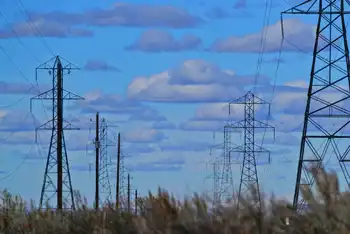U.S. backpedals on daylight saving
"We want to give Ontarians the opportunity to contact their government directly so we have set up an email address," said Bryant, referring to daylight saving@jus.gov.on.ca.
Daylight saving now runs from April to October. But earlier this week, the U.S. Congress gave provisional approval to extending daylight time for two months — from the beginning of March to the end of November — leaving Canadian officials scrambling to act.
In the face of mounting opposition, U.S. legislators scaled back their plans.
House and Senate negotiators now propose that the start of daylight saving be moved to the second Sunday in March. The end of daylight saving would be extended by only one week — to the first Sunday in November.
The U.S. legislators are also considering delaying the launch of their plan from this fall to 2007.
Bryant noted that the U.S. proposal was not a done deal and that Congress was having second thoughts.
"They've heard from their constituents unhappy about their kids having to go to school in the dark. We'll monitor what the United States does closely."
Still, he said he has assigned his parliamentary assistant David Zimmer to head up the "interministerial and inter-governmental effort to ensure that we have as informed a recommendation as possible" after hearing from all of the different sectors "from agriculture to energy, commerce, finance, public safety, education and others."
While Ontario has traditionally followed the U.S. on time changes, Bryant said the province will act in "Ontarians' interest, which does not necessarily mean automatically following in lockstep with the United States government's change to daylight saving time."
The attorney general also emphasized that no new law would have to be passed to amend the daylight time calendar.
"In the event that a decision is made to change, we can do so by regulation," he said.
While Ontario will consult the federal government about the issue, time is a responsibility of each province.
In the U.S., the proposal to expand daylight saving ran into heated opposition, from parents who said schoolchildren would be forced to wait at bus stops in darkness. The airlines also complained the move would wreak havoc on schedules.
Related News

Germany’s renewable energy dreams derailed by cheap Russian gas, electricity grid expansion woes
BERLIN - On a blazing hot August day on Germany’s Baltic Sea coast, a few hundred tourists skip the beach to visit the “Fascination Offshore Wind” exhibition, held in the port of Mukran at the Arkona wind park. They stand facing the sea, gawking at white fiberglass blades, which at 250 feet are longer than the wingspan of a 747 aircraft. Those blades, they’re told, will soon be spinning atop 60 wind-turbine towers bolted to concrete pilings driven deep into the seabed 20 miles offshore. By early 2019, Arkona is expected to generate 385 megawatts, enough electricity to power 400,000…




